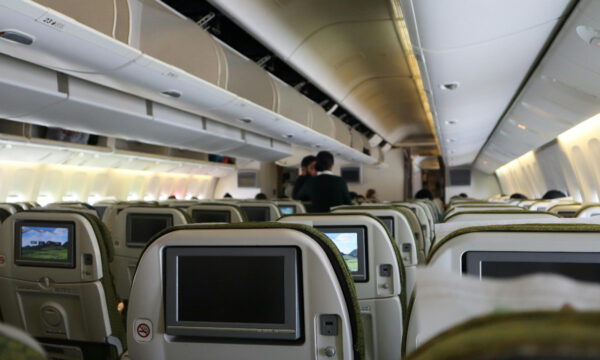How to stay productive while travelling for work?

Business trips sound exciting on paper – airports, hotels, a change of scenery – but anyone who’s done it regularly knows the hidden trap: staying productive. Flights are delayed. Hotel Wi-Fi acts up. The regular routine? Obliterated. It’s not a vacation, but it’s definitely not the normal workspace either. So, maintaining productivity becomes a challenge when the setting keeps shifting beneath one’s feet.
Here’s a blend of unpredictable tactics, real talk, and unusual methods – plus a few tools one might not expect – to help individuals stay on top of their game when travelling for work.
Routines: Recreate, don’t reinvent
Having a system before boarding a plane – morning coffee, 9 AM check-in, lunch around noon, and afternoon calls – is beneficial. Sticking to that, even when the time zone might disrupt one’s mental equilibrium, is advisable. Even a partial version of one’s home routine can serve as an anchor. For instance, substituting a usual dog walk to clear the head with a short walk around the block near the hotel can be effective. The underlying point is that familiarity resets the mind.
Tip: Proactively blocking one’s calendar is a smart strategy. Making it clear to others when not available is important. There is no obligation to be accessible 24/7 just because one is in a different city.
Redefine what “work” means
Productivity doesn’t always mean knocking out big projects. Travelling often brings its own set of microtasks – responding to emails, catching up on reading, networking, or planning. Use “in-between” moments (like waiting for an Uber or standing in line for coffee) for bite-sized productivity.
A 2022 study by the Global Business Travel Association found that 55% of professionals working remotely during travel say they accomplish more “small but necessary” tasks compared to being at the office. Use this to your advantage.
Use tools that travel with you
This represents the essence of modern productivity: apps and tools. Not those that remain unused on a home desktop. The necessity lies in those that perform under pressure, in transit, and across time zones. One such underrated category? Call recording tools.
During business travel, calls are likely to be taken at unusual hours. Important updates, spontaneous brainstorms, quick decisions. However, it’s not always possible to capture everything mentally. This is where apps like Call Recorder for iPhone prove invaluable. By recording calls on an iPhone, one can always revisit the recording, take notes, work out comments or suggestions in detail, etc. With Call Recorder for iPhone, no details will escape. Another useful reason for having a phone recording app is that it saves time and aids in work planning. A call at an inconvenient time? Simply record it and respond when convenient.
It’s not just helpful. It’s essential when the environment is in flux.
Create zones: Physical and mental
Hotels aren’t built for focused work. Building one’s own zones is advisable. A desk should be designated for emailing. The bed should be reserved only for sleeping (or decompressing). A chair by the window should be allocated for Zoom calls. This approach may seem like overkill until one realises the amount of time wasted mentally resetting each time task-switching occurs without a defined space.
A pro tip is to pack a foldable phone stand. This creates a mini workstation vibe wherever one might be.
Mental zones count too. Handling complex tasks when energy is low is not advisable. Those low-focus moments should be used to do admin work, not strategy planning.
Sleep isn’t optional. It’s tactical.
There is a lot of talk about hustle. Grind. “Catching up” later. However, sleep debt doesn’t operate like a bank account. It’s not possible to make a withdrawal and then hope to repay it the following week.
Productivity expert Chris Bailey, author of The Productivity Project, discovered that sacrificing just one hour of sleep can reduce cognitive performance to the level of someone legally drunk. Therefore, when flying cross-country for a pitch meeting, pulling an all-nighter emerges as the worst preparation strategy.
Scheduling rest in the same manner as meetings is advised. Building buffers for jet lag is recommended. Strategy is key. A rested mind operates smarter – not just for longer hours.
Wi-fi is not a guarantee. Prepare offline
Here’s the truth: hotel Wi-Fi often stinks. Airplane Wi-Fi? Let’s not even go there. Always download key documents, spreadsheets, notes, presentations before travelling. Reliance on the cloud as a savior in midair is not advisable.
Bonus tip: Evernote or Notion offline mode. Lifesavers. No Wi-Fi? No problem. Thoughts, agenda, and ideas remain accessible.
Reflect daily – even if it’s just five minutes
At the end of the day, regardless of location, it’s beneficial to jot down what worked, what didn’t, and what distractions occurred. One of the biggest productivity killers is failing to learn from one’s own patterns. Travelling offers the chance to reset but also exposes the cracks in work processes. Shining a light on these aspects is crucial.
This reflection might be one sentence or a full page. Doesn’t matter. The habit builds mental sharpness over time.
Automate follow-ups and meeting notes
Post-meeting fatigue is a common experience. Individuals leave meetings, grab cabs, check into hotels, and often forget half of what was said. To maintain productivity, automating tasks is advisable. Tools such as call recording apps eliminate the need to manually write every action item. Recording, storing, and revisiting information allows automation to assist with memory retention.
Fuel wisely, move often
Eat like a local, sure. But also – eat in a way that promotes optimal brain function. High-sugar meals and heavy dinners tend to slow down cognitive processes. A 2021 study in Nutrients found that processed foods can negatively affect cognition within just hours.
Walk. Take stairs. Do quick stretches between calls. Motion improves circulation, and circulation improves brain function.
Final word: Balance beats hustle
Travelling for work and achieving results are important. However, allocating every second to tasks without consideration for well-being will lead to burnout. Greater productivity is achieved by respecting one’s energy, planning around personal strengths, and utilising tools that enhance efficiency rather than hinder it.
Staying productive on the road does not entail recreating an office environment hour by hour. Instead, it involves adapting professionally and learning to manage the chaos rather than being overwhelmed by it.
The editorial unit
























Facebook
Twitter
Instagram
YouTube
RSS